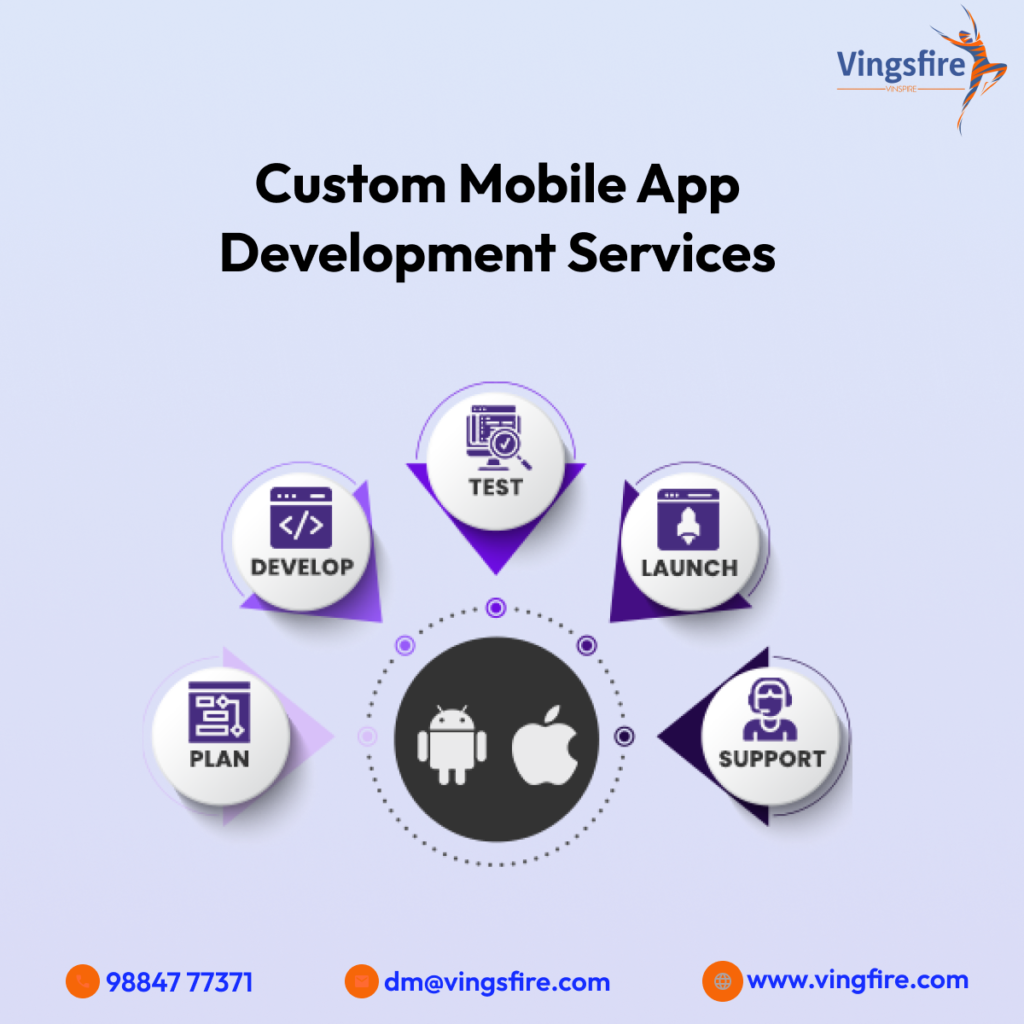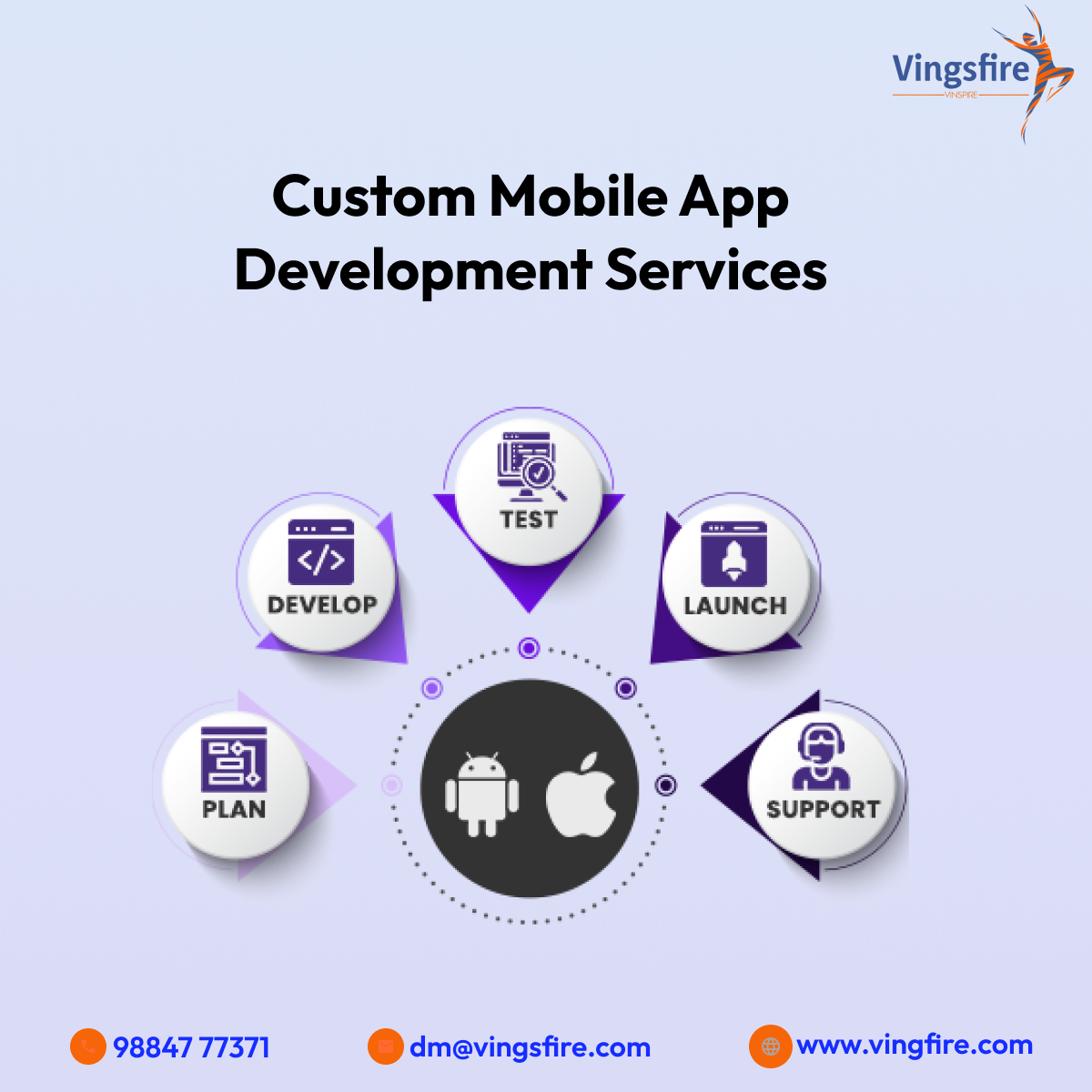
Mobile development services play a crucial role in today’s digital landscape, enabling businesses to reach their target audience, enhance user engagement, and drive growth through innovative mobile applications. Whether it’s developing native apps for iOS and Android platforms or creating cross-platform solutions, mobile development services cater to diverse business needs and objectives. In this comprehensive guide, we will delve into the world of mobile development services, exploring their key offerings, best practices, and the factors to consider when choosing a development partner.
Section 1: Understanding Mobile Development Services
1.1 Overview of Mobile Development Services Mobile development services encompass a wide range of activities aimed at creating mobile applications for smartphones, tablets, and other handheld devices. These services include native app development, cross-platform development, mobile web development, UI/UX design, testing, and maintenance. Mobile development service providers leverage their expertise and resources to help businesses conceptualize, design, develop, and deploy custom mobile apps tailored to their unique requirements.
1.2 Importance of Mobile Development Services In today’s mobile-first world, businesses must have a strong presence on mobile platforms to stay competitive and meet customer expectations. Mobile development services enable businesses to leverage the power of mobile technology to engage with customers, streamline business processes, and drive revenue growth. By partnering with a reputable mobile development service provider, businesses can accelerate their digital transformation journey and achieve their business objectives.
Section 2: Key Offerings of Mobile Development Services
2.1 Native App Development Native app development involves creating applications for specific mobile platforms, such as iOS or Android, using platform-specific programming languages (Swift or Objective-C for iOS, Java or Kotlin for Android). Mobile development service providers specialize in native app development, leveraging their platform expertise to create high-performance, feature-rich apps that offer seamless user experiences.
2.2 Cross-Platform Development Cross-platform development allows businesses to build mobile apps that run on multiple platforms using a single codebase. Mobile development service providers use frameworks such as React Native, Flutter, or Xamarin to develop cross-platform apps, enabling businesses to reach a broader audience with reduced development time and cost.
2.3 Mobile Web Development Mobile web development involves creating web applications optimized for mobile browsers. Mobile development service providers use responsive design principles and frameworks like Bootstrap or Foundation to build mobile-friendly web applications that adapt to different screen sizes and devices. Mobile web development is an excellent option for businesses looking to provide a consistent user experience across desktop and mobile devices.
2.4 UI/UX Design UI/UX design is a critical aspect of mobile app development, influencing user engagement, retention, and satisfaction. Mobile development service providers offer UI/UX design services to create visually appealing and intuitive interfaces that enhance the overall user experience. From wireframing and prototyping to user testing and iteration, UI/UX design plays a crucial role in the success of mobile apps.
Section 3: Best Practices for Mobile Development Services
3.1 Understanding Business Requirements Before embarking on a mobile development project, it’s essential to understand the business requirements and objectives. Mobile development service providers work closely with clients to gather requirements, define project scope, and establish clear goals and deliverables. By aligning the development process with business objectives, service providers ensure that the resulting mobile app meets the needs of both the business and its users.
3.2 Choosing the Right Development Approach Selecting the right development approach is crucial for the success of a mobile development project. Whether it’s native app development, cross-platform development, or mobile web development, mobile development service providers assess the project requirements, budget constraints, and target audience to determine the most suitable approach. Each development approach has its pros and cons, and service providers help businesses make informed decisions based on their specific needs.
3.3 Prioritizing User Experience User experience (UX) is a key differentiator for mobile apps, influencing user satisfaction, retention, and engagement. Mobile development service providers prioritize UX design throughout the development process, focusing on usability, accessibility, and aesthetics. By conducting user research, creating user personas, and designing intuitive interfaces, service providers ensure that the mobile app delivers a seamless and enjoyable user experience.
3.4 Agile Development Methodology Agile development methodology emphasizes collaboration, flexibility, and iterative development, allowing for rapid adaptation to changing requirements and market conditions. Mobile development service providers follow agile principles and practices, such as iterative development, continuous feedback, and incremental delivery, to ensure that the mobile app meets evolving user needs and business goals.
3.5 Testing and Quality Assurance Thorough testing and quality assurance are essential for delivering a reliable and bug-free mobile app. Mobile development service providers conduct various types of testing, including functional testing, usability testing, performance testing, and security testing, to identify and address any issues or defects. By implementing rigorous testing processes and quality assurance standards, service providers ensure that the mobile app meets the highest standards of quality and reliability.
Section 4: Conclusion and Future Trends In conclusion
mobile development services are indispensable for businesses looking to capitalize on the opportunities presented by the mobile revolution. By partnering with a reputable mobile development service provider and following best practices, businesses can create innovative and user-centric mobile apps that drive engagement, loyalty, and business growth in the dynamic mobile landscape.

